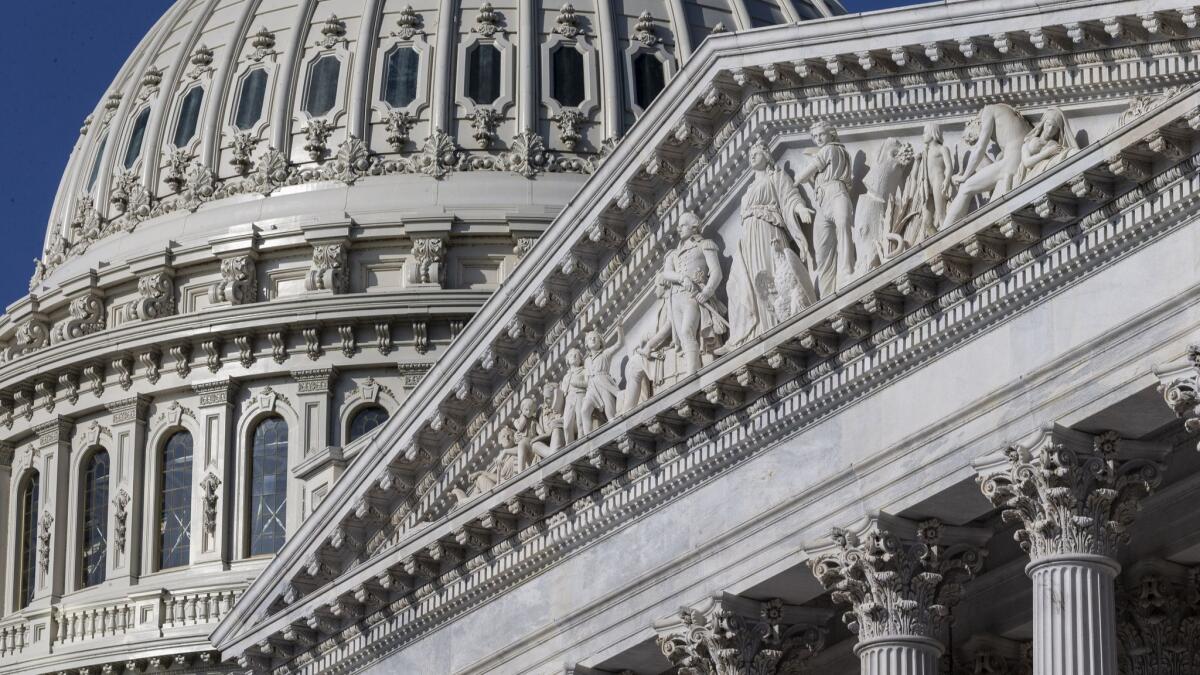U.S. budget deficit balloons to $739 billion despite tariff revenue

- Share via
The U.S. budget deficit widened to $738.6 billion in the first eight months of the fiscal year, a $206-billion increase from a year earlier, despite a revenue boost from President Trump’s tariffs on imported merchandise.
The shortfall was 38.8% more than a year earlier, the Treasury Department said in its monthly budget review released Wednesday. So far in the fiscal year that began Oct. 1, a revenue increase of 2.3% hasn’t kept pace with a 9.3% rise in spending.
As Trump ratcheted up the U.S.-China trade war with higher levies on imports from the Asian nation, the United States recorded $4.9 billion in customs duties in May, bringing the total to $44.9 billion in the first eight months of the fiscal year — almost twice as much as a year earlier. Trump has repeatedly boasted that the United States is taking in billions of dollars through the tariffs, though importers in America are the ones paying the levies.
Even so, those extra funds have failed to keep the budget gap from increasing under Trump. The widening gap is driven by a combination of Republican tax cuts that will add up to about $1.5 trillion over a decade, and increased government spending. The deficit is forecast to reach $897 billion this fiscal year, up from $779 billion last year, and rise to more than $1 trillion in fiscal 2022, according to the Congressional Budget Office.
The White House has said the tax cuts will pay for themselves by creating more revenue through faster and sustainable economic growth.
In May the fiscal deficit increased to $207.8 billion, up 41.5% from May 2018. The forecast in a Bloomberg survey of economists was $202.5 billion.
More to Read
Inside the business of entertainment
The Wide Shot brings you news, analysis and insights on everything from streaming wars to production — and what it all means for the future.
You may occasionally receive promotional content from the Los Angeles Times.










